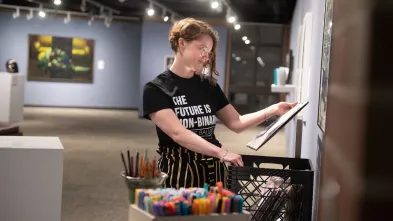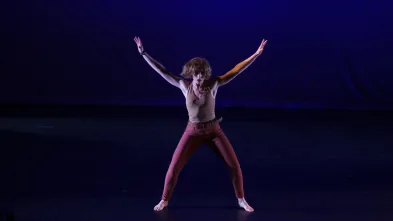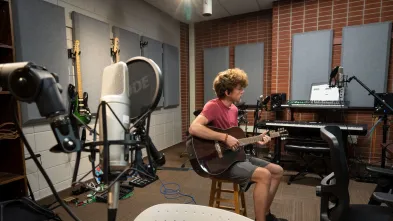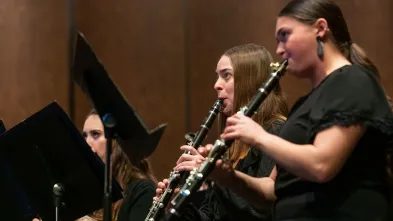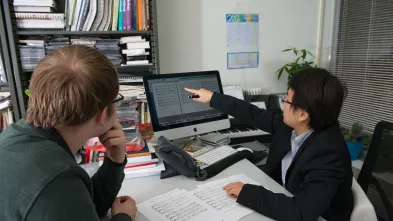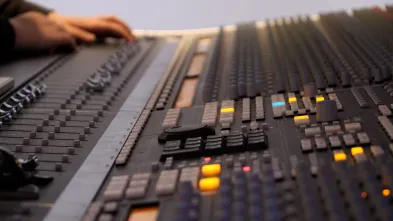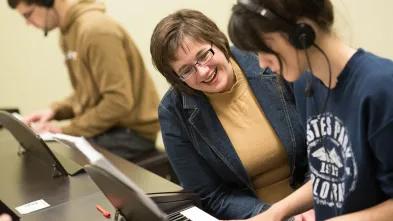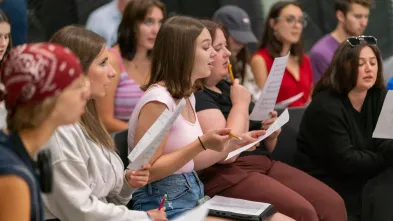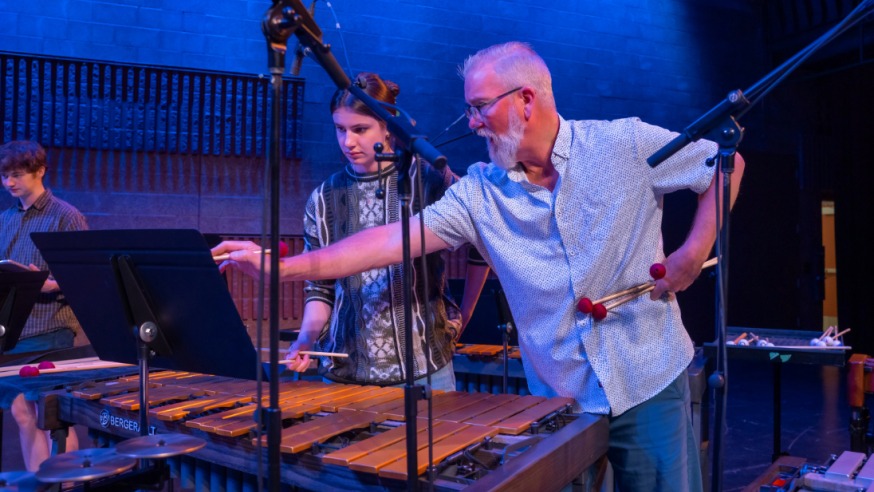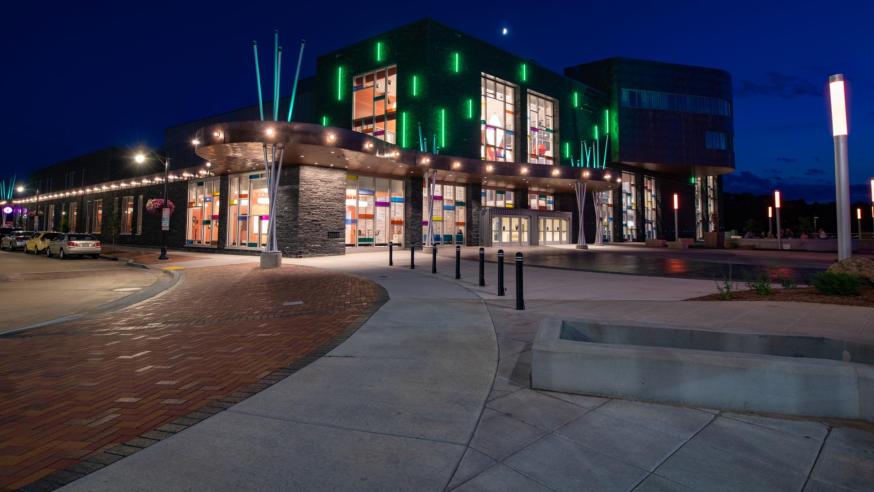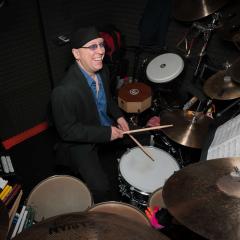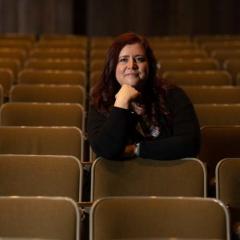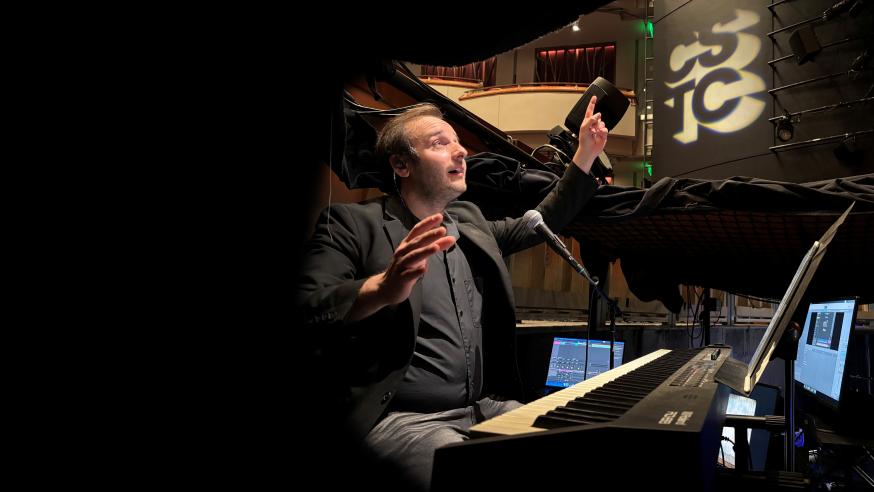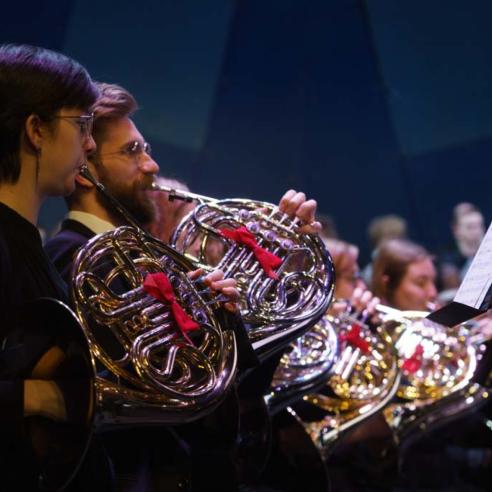Music and Theatre Arts Department
Take the Stage
Transform your passion for music into professional excellence in our rigorous program accredited by the National Association of Schools of Music. Our noteworthy programs will give you the experience — and confidence — needed to tackle your future endeavors and launch you into a career you'll love. Here, nationally recognized professors will guide your artistic development, offer a supportive environment, and give you one-on-one attention. From the professors who teach you to the students who work alongside you, a love for music is not hard to find when you’re at UW-Eau Claire. The greater Eau Claire community is known as a hub for arts and culture and is nationally recognized for its abundance of music festivals, events, and venues.
Majors and Minors in Music and Theatre Arts
The Music and Theatre Arts Department offers a wide variety of majors, minors, certificates, ensembles, and performance opportunities. Whatever your passion is, you'll find experts to help your interest flourish. Through music, theatre, dance, or whatever else interests you, we want you to be part of our traditions, light up our stages, and enrich our community.
In addition to UW-Eau Claire admission requirements, you will need to successfully complete a music program audition in order to be a music major, music minor, or musical theatre major at UW-Eau Claire. Theatre majors, theatre minors, and certificates do not require an audition and may be declared at any time. Program auditions (different than ensemble auditions) are held in January, February, and March for admittance the following year and have an online application. All program audition information can be found on the Music and Theatre Arts program auditions webpage.
Meet the Faculty

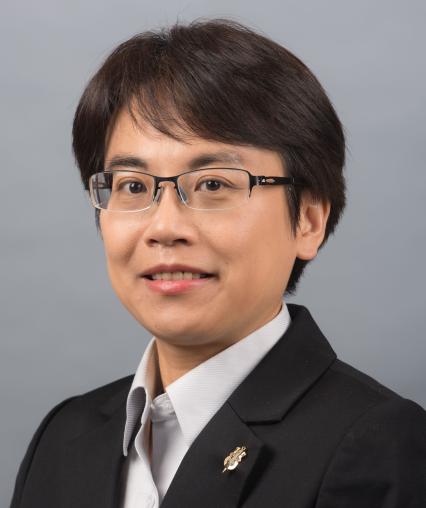

Justthe
facts
Blugold Stories
Music and Theatre Arts Department
Haas Fine Arts Center 156
121 Water Street
Eau Claire, WI 54703
United States
